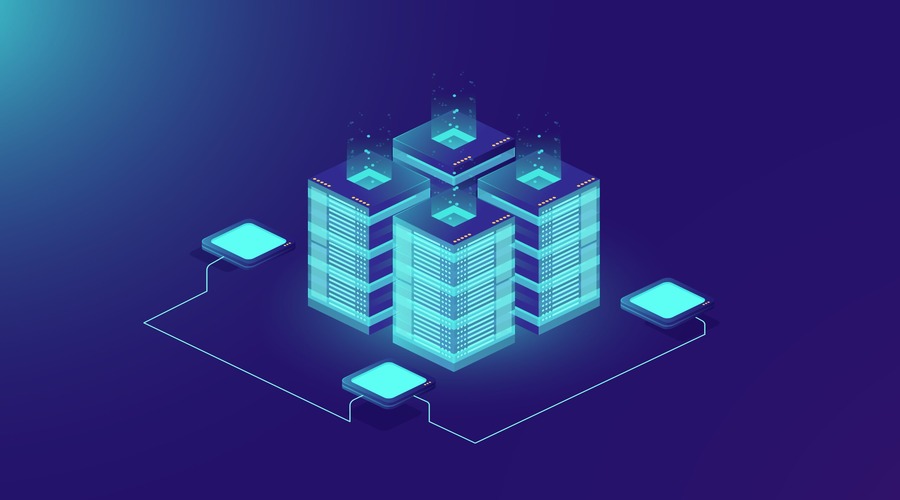Blockchain technology has revolutionized various industries by offering decentralized and secure solutions. One of the areas where blockchain shows immense promise is in decentralized data storage. In this article, we will explore the advantages and challenges associated with blockchain-based decentralized data storage.
Understanding Blockchain Technology
Blockchain is a distributed ledger that maintains a record of transactions across multiple computers or nodes. It operates on a decentralized network, ensuring transparency and immutability. Each block in the chain contains a unique hash, linking it to the previous block, forming a secure and tamper-proof system.
Decentralized Data Storage Explained
Decentralized data storage refers to the storage of data across a network of nodes rather than a centralized server. Traditional centralized storage systems are vulnerable to data breaches and single points of failure. Decentralization eliminates these risks by distributing data across multiple nodes, making it more resilient and secure.
Advantages of Blockchain-based Decentralized Data Storage
Advantages of Blockchain-based Decentralized Data Storage
- Enhanced Security: Blockchain technology provides robust security measures that enhance data protection. Each block in the chain is linked through cryptographic hashes, ensuring the immutability and integrity of stored data. The decentralized nature of blockchain eliminates single points of failure, making it extremely difficult for hackers to compromise the system.
- Improved Data Integrity: With blockchain-based decentralized data storage, data integrity is assured. Once a piece of data is stored on the blockchain, it cannot be altered or tampered with without consensus from the network participants. This feature eliminates the need for trust in third-party intermediaries and ensures the authenticity of stored information.
- Increased Data Availability and Accessibility: Traditional centralized data storage systems can suffer from downtime or failures, leading to data unavailability. In contrast, decentralized data storage on a blockchain ensures high availability. The data is replicated across multiple nodes, and even if some nodes go offline, the data remains accessible from other active nodes. This increased availability and accessibility enhance the efficiency of data retrieval.
- Cost Efficiency: Blockchain-based decentralized data storage can significantly reduce costs for businesses. By eliminating the need for intermediaries, organizations can save on fees associated with data storage and retrieval. Additionally, the distributed nature of blockchain reduces the need for expensive data centers, infrastructure, and maintenance costs.
- Enhanced Privacy: Blockchain technology provides a high level of privacy for stored data. Data on the blockchain is encrypted and accessible only to authorized participants with the appropriate cryptographic keys. This ensures that sensitive information remains confidential and protected from unauthorized access.
- Transparency and Auditability: Blockchain offers transparency by maintaining a public ledger of all transactions and data entries. This transparency enhances trust among participants and allows for easy auditability. Any changes or updates to the data are recorded on the blockchain, providing a transparent and auditable trail of events.
- Trust and Decentralization: Decentralized data storage on a blockchain eliminates the need for trust in a central authority. The distributed consensus mechanism ensures that all network participants agree on the validity of transactions and data entries. This trustless environment builds confidence and reduces the risk of manipulation or fraud.
- Immutable Recordkeeping: Blockchain technology provides an immutable record of all transactions and data entries. Once data is added to the blockchain, it cannot be modified or deleted without consensus from the network participants. This feature is particularly valuable for industries that require accurate and unalterable recordkeeping, such as supply chain management or healthcare.
- Cross-Organizational Collaboration: Blockchain-based decentralized data storage enables secure and efficient collaboration between different organizations. It eliminates the need for intermediaries, streamlines data sharing processes, and ensures data consistency across multiple parties. This facilitates seamless collaboration while maintaining data privacy and security.
- Potential for Smart Contracts: Blockchain’s programmable nature opens the door to smart contracts, self-executing contracts with predefined rules and conditions. These contracts can automate processes, such as data sharing or payments, based on predetermined criteria. Smart contracts can enhance efficiency, reduce costs, and eliminate the need for intermediaries in various industries.
- Global Accessibility: Blockchain-based decentralized data storage enables global accessibility to data. As long as users have internet access, they can retrieve and interact with the stored data from anywhere in the world. This global accessibility promotes information sharing, collaboration, and innovation on a global scale.
- Data Ownership and Control: With blockchain, individuals and organizations have greater control over their data. They can determine who can access their data and under what conditions. This shift in data ownership and control empowers individuals and enables them to make informed decisions about data sharing and privacy.
- Resilience to Failures: The decentralized nature of blockchain-based data storage makes it more resilient to failures and attacks. As the data is distributed across multiple nodes, the system remains operational even if some nodes experience technical issues or go offline. This resilience ensures continuous data availability and minimizes the risk of data loss.
- Elimination of Single Points of Failure: Traditional centralized data storage systems are vulnerable to single points of failure, where the failure of a central server can result in data loss or unavailability. With blockchain-based decentralized data storage, the distributed nature eliminates single points of failure, ensuring data redundancy and robustness.
- Future-Proofing: Blockchain technology holds immense potential for future applications and innovations. By adopting blockchain-based decentralized data storage, organizations can future-proof their data infrastructure and stay ahead in a rapidly evolving technological landscape.
In conclusion, blockchain-based decentralized data storage offers numerous advantages such as enhanced security, improved data integrity, increased availability and accessibility, cost efficiency, privacy, transparency, and trust. It empowers individuals and organizations with control over their data while enabling efficient collaboration and ensuring resilience to failures. Embracing this technology can transform the way data is stored, shared, and secured in various industries.

Potential Challenges of Blockchain-based Decentralized Data Storage
- Scalability: Blockchain technology faces scalability challenges when it comes to handling large amounts of data and high transaction volumes. As more data is added to the blockchain, the size of the ledger increases, potentially leading to slower transaction processing times and increased storage requirements.
- Energy Consumption: The consensus algorithms used in blockchain, such as Proof-of-Work (PoW), require significant computational power and energy consumption. This energy-intensive nature of blockchain can pose environmental concerns and may limit the scalability of decentralized data storage.
- Regulatory and Legal Considerations: The regulatory landscape surrounding blockchain technology and decentralized data storage is still evolving. Organizations must navigate compliance with existing data protection and privacy regulations, as well as address potential legal implications and jurisdictional challenges.
- Interoperability: Interoperability between different blockchain platforms and decentralized storage networks is crucial for seamless data sharing and collaboration. However, achieving interoperability remains a challenge due to the lack of standardized protocols and compatibility issues between different blockchain implementations.
- Security Risks: While blockchain technology offers enhanced security, it is not completely immune to security risks. Smart contract vulnerabilities, malicious attacks on the network, or flaws in the underlying cryptographic algorithms can potentially compromise the security of decentralized data storage systems.
- User Experience and Adoption Barriers: Blockchain technology is still relatively new, and the user experience may not be as intuitive as traditional centralized systems. The complexity of interacting with blockchain networks and managing cryptographic keys can present adoption barriers for individuals and organizations.
- Governance and Consensus Mechanisms: Decentralized data storage on a blockchain requires governance and consensus mechanisms to make decisions about network updates, protocol changes, and data management. Achieving consensus among network participants can be a complex process and may require compromises and coordination.
- Data Privacy and Confidentiality: While blockchain provides transparency, ensuring data privacy and confidentiality can be challenging. Blockchain transactions are visible to all participants, and protecting sensitive information while maintaining transparency poses a significant challenge.
- Storage Costs: Although blockchain eliminates the need for centralized infrastructure, the cost of storing data on a blockchain can be higher compared to traditional storage solutions. Storing large amounts of data on-chain can result in increased storage costs and may not be economically viable for certain applications.
- Education and Skill Gap: Blockchain technology requires specialized knowledge and expertise for its implementation and maintenance. The current skill gap in blockchain development and management can hinder the widespread adoption of decentralized data storage solutions.
Addressing these challenges is crucial for the successful implementation and adoption of blockchain-based decentralized data storage. Ongoing research, technological advancements, and collaborative efforts within the blockchain community are vital to overcome these obstacles and unlock the full potential of decentralized data storage.
Conclusion
Blockchain-based decentralized data storage offers significant advantages in terms of security, privacy, data integrity, availability, and cost efficiency. However, challenges such as scalability, energy consumption, regulatory considerations, and interoperability need to be addressed for widespread adoption. As the technology continues to evolve, the benefits of blockchain-based decentralized data storage are expected to outweigh the challenges, paving the way for a more secure and transparent data storage landscape.
FAQs
- Can blockchain-based decentralized data storage be hacked?
- Blockchain-based decentralized data storage provides robust security measures, making it extremely difficult to hack. However, like any technology, it is not completely immune to attacks. Proper implementation and adherence to best security practices are essential.
- How does decentralized data storage ensure data availability?
- Decentralized data storage replicates data across multiple nodes, ensuring redundancy. If some nodes go offline, the data remains accessible from other active nodes, enhancing data availability.
- Are there any regulatory concerns with blockchain-based decentralized data storage?
- The regulatory landscape surrounding blockchain technology and data storage is still evolving. Organizations need to ensure compliance with existing data protection and privacy regulations when implementing blockchain-based solutions.
- What are the energy consumption concerns associated with blockchain technology?
- Traditional blockchain consensus algorithms, like Proof-of-Work, require substantial computational power and energy consumption. However, newer algorithms like Proof-of-Stake are emerging as more energy-efficient alternatives.
- How can blockchain-based decentralized data storage benefit businesses?
- Blockchain-based decentralized data storage offers increased security, data integrity, availability, and cost efficiency. It can help businesses reduce the risk of data breaches, eliminate reliance on intermediaries, and enhance customer trust.

